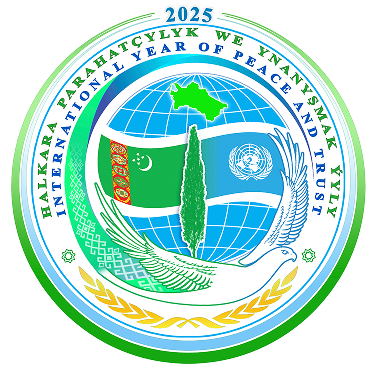we ynanyşmak ýyly»




Integration of mainstream bicycling into public transportation systems for sustainable development
The General Assembly,
Recalling its resolution 72/272 of 12 April 2018, entitled “World Bicycle Day”,
Recalling also that, in the 2030 Agenda for Sustainable Development, 1 inter alia, sport was recognized as an important enabler of sustainable development,
Recognizing that eradicating poverty in all its forms and dimensions, including extreme poverty, is the greatest global challenge and an indispensable requirement for sustainable development, and acknowledging that, in many developing countries, bicycling to work as a mode of transportation can be directly associated with poverty and lack of adequate financial resources of families and inability to elevate their standard of living,
Recognizing also the need to strengthen and further coordinate efforts, including multi-stakeholder partnerships, at all levels to maximize the potential of the bicycle and other active mobility modes to contribute to the achievement of the Sustainable Development Goals and targets of the 2030 Agenda,
Recalling the first United Nations Global Sustainable Transport Conference, held in Ashgabat, Turkmenistan, on 26 and 27 November 2016, and the second United Nations Global Sustainable Transport Conference, held in Beijing, China, from 14 to 16 October 2021,
Acknowledging the uniqueness, longevity and versatility of the bicycle, which has been in use for two centuries, and that it is a simple, affordable, reliable, clean and environmentally fit sustainable means of transportation, fostering environmental stewardship and health,
Recognizing that the bicycle can serve as a tool for development and as a means not just of transportation but also of access to education, health care and sport,
Emphasizing that the bicycle is an instrument of sustainable transportation and conveys a positive message to foster sustainable consumption and production, and has a positive impact on climate,
Acknowledging the role of the United Nations system and its country programmes in supporting Member States, upon request, in promoting social development through sport, physical education, recreation and tourism, including mainstream bicycling for all,
Emphasizing the role of productive public-private partnerships in financing programmes for the preservation of the environment, institutional development and physical and social infrastructure, contributing to the achievement of the 2030 Agenda, including through the integration of bicycling into public transportation systems,
Noting that major international and local cycling competitions should be organized in the spirit of peace, mutual understanding, friendship, tolerance and inadmissibility of discrimination of any kind and that the unifying and conciliative nature of such events should be respected,
Noting also that the coronavirus disease (COVID-19) pandemic has changed transport needs and behaviour, and prompted many cities to rethink their transportation systems, with bicycles playing a vital role in offering an economical and non-polluting alternative,
Noting further the importance of transportation planning and policies that allow for the proper integration and interoperability of advanced transportation technologies, such as shared bike services, to bring about transformative changes to transportation systems, including accelerated digitalization, energy efficiency technologies and low-emission fuel technologies in line with Sustainable Development Goal 7, and to strengthen capacity-building support to developing countries,
Acknowledging that the bicycle is one of the most eco-friendly modes of transportation that significantly reduces emissions, and that bicycling delivers far- reaching positive socioeconomic impacts in addition to reduced pollution,
Noting the increasing use of shared bike services, cargo bicycles and adaptive bicycles, which has broadened both the bicycle trip purpose and the bicycling user base,
Emphasizing that bicycling can contribute to reducing greenhouse gas emissions and addressing climate change,
Recognizing the role of the bicycle as another mode of transportation that serves to aid community resiliency around the globe during emergencies and disasters,
Recognizing also that more efficient and low-emission modes of transportation are possible, such as bicycling integrated into public transportation systems, and can be encouraged by urban planning and the development of a quality, reliable, sustainable and resilient infrastructure,
61st plenary meeting
15 March 2022

